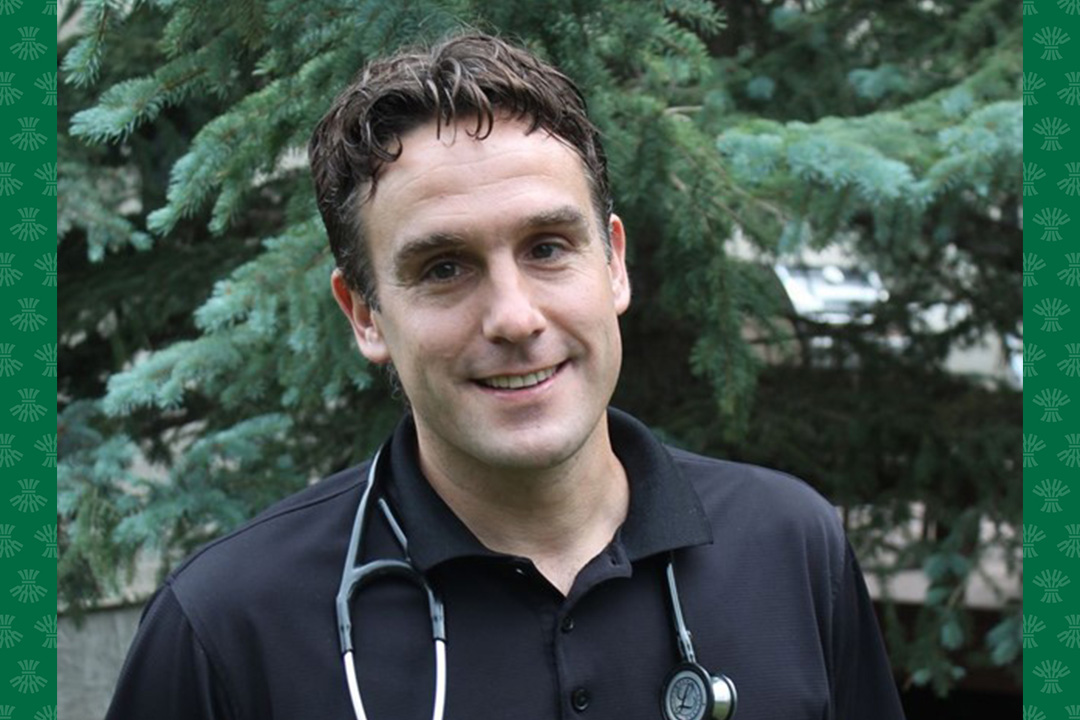
Getting to Know: Dr. Stuart Skinner
A Q-and-A with Dr. Stuart Skinner (MD), a Regina-based faculty member in the Department of Medicine’s Division of Infectious Diseases.
Could you provide a short description of your background?
I received my medical degree in 2002 from the University of Saskatchewan (USask), a Diploma in Tropical Medicine and Hygiene from the University of Alabama-Birmingham in 2005 and completed an infectious diseases fellowship at the University of Manitoba in 2007. I am currently an assistant professor at USask, section lead for the Division of Infectious Diseases in Regina, and executive director of the Wellness Wheel Medical Clinic, supporting First Nations communities in Saskatchewan.
What is your area of research?
My area of research is primarily focused on providing health equitability and delivery of care models in partnership with First Nations communities. We provide a holistic and team-based care approach to adapt health systems to those in need. As an infectious disease specialist my focus is on providing HIV, Hepatitis C virus (HCV), and chronic disease care through the Wellness Wheel Medical Clinic. The research includes clinical care models, virtual care approaches, peer programs, and an approach to providing as much care as possible in one clinic visit.
Can you tell us about your ‘big moments of research’?
I am the principal investigator for the Know Your Status project, which has been recognized internationally for its work to refine and expand an on-reserve prevention, testing, and care program for HIV, HCV and other sexually transmitted and blood borne infections (STBBIs). This was a Canadian Institutes of Health Research (CIHR) five-year funded grant and the first CIHR-funded project for a physician in Regina. Most recently, our team received a top-scoring Saskatchewan Health Research Foundation (SHRF) Innovations Grant titled Cultural Care for Addictions: A Peer Network Based Approach. This work is focused on land-based healing and aims to formally integrate people with lived experience (PWLE) into the health care system with training and certification on peer mentorship.
Do you have any advice for early-career clinicians on how to get involved in research? Or any messages for junior researchers?
My advice for early career clinicians is to find an area that inspires them and to connect with a group or team that can provide the infrastructure and support to help them reach their research goals. Research is a broad term that can apply on many levels and integrating it into part of your current clinical care focus can make it simple to do. Utilizing a team-based approach allows the support to build your research portfolio while reducing the time demand in a busy clinical practice. Research has allowed me to display the work we do on a local, national and international level.
What are your future research aspirations?
My future aspirations are focused on healthcare reform, equitability, and showcasing different care models that can be matched to individual and community needs. I also aim to support, mentor, and guide junior researchers to help them develop their research goals.
